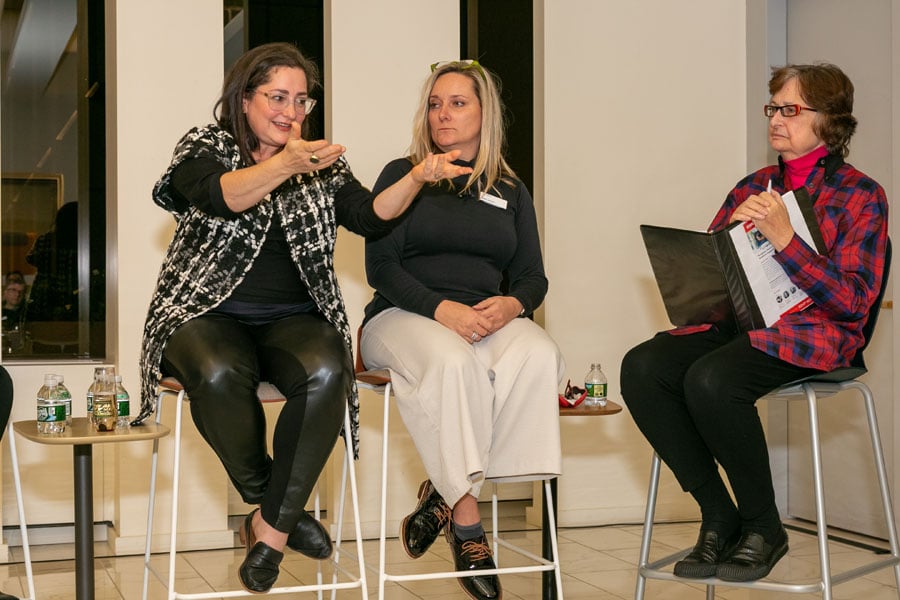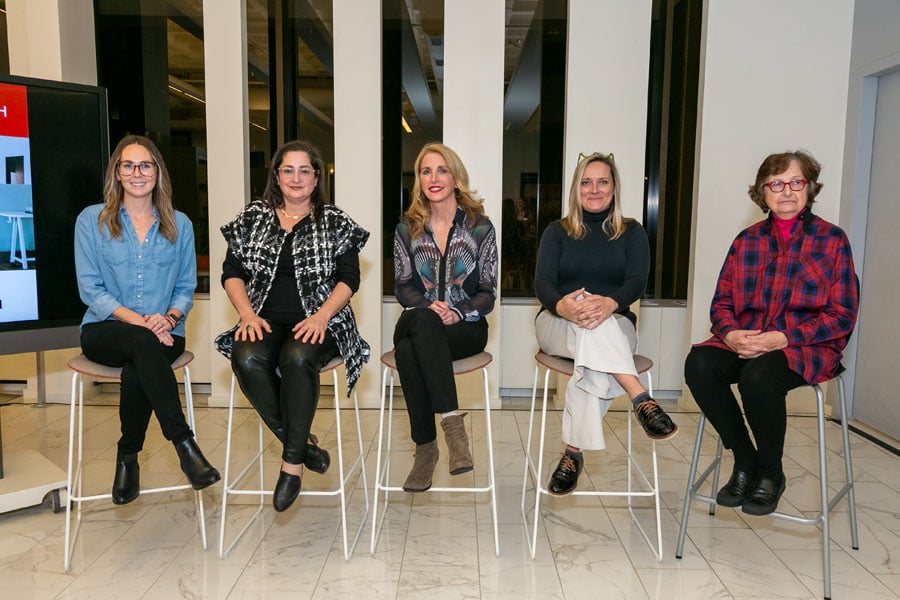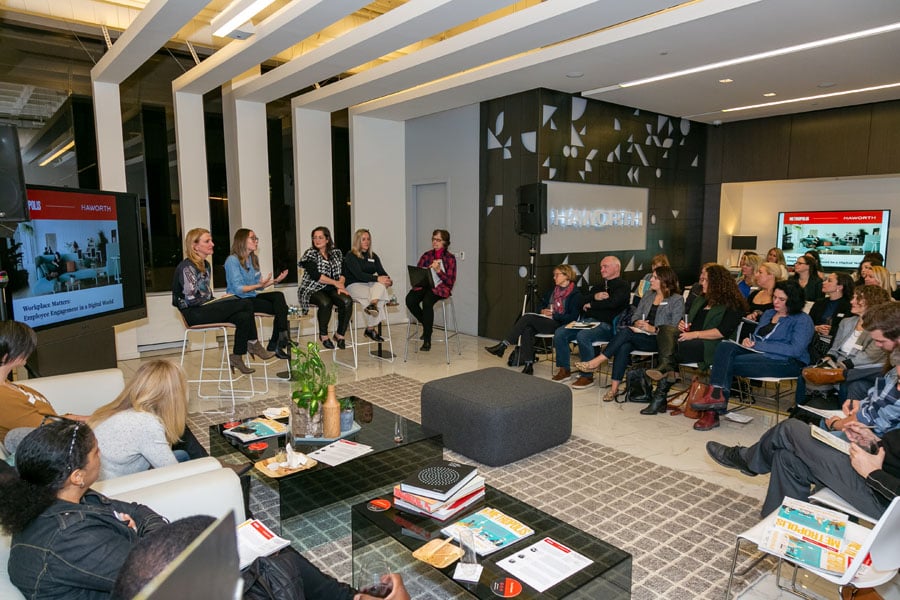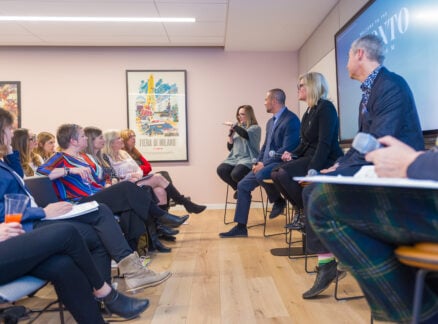
January 16, 2020
Designing with Empathy For Inclusive Workplaces
A recent event at Haworth’s Philadelphia showroom revealed the importance of empathy in designing more inclusive workplaces.

“We need to be able to create environments where everyone feels comfortable,” asserted Debra Breslow, principal at Meyer Design, during a recent panel hosted by Haworth in Philadelphia. During the session, panelists discussed the ways in which design thinking can be an effective tool to implement inclusive workplace culture. Design thinking, according to industrial designer and CreateXChange founder Karin Copeland, involves asking the client questions and understanding their background and needs. “If you’re designing furniture, how are people sitting and interacting? By watching and taking notes, you’re able to solve these problems,” she explained. In order to use design thinking to create welcoming spaces, it’s key to embrace different perspectives and innovation.
Breslow suggested encouraging a melting pot of cultures at the workplace through HR initiatives, such as ethnic lunch potlucks or quiet zones for meditation. Achieving a safe environment requires collaborating with various groups and implementing the technology and infrastructure to allow for cultural diffusion. “You have to be open minded and to make sure that within an organization you get the right amount of folks to give that diversity of thought,” Breslow said.
Colleen Yurkanin, senior innovation specialist at Vanguard, believes in teaching design thinking with an empathetic mindset to non-designers. Having an open line of communication across disciplines will help designers understand their clients’ needs and navigate possible challenges between professionals from different backgrounds. As a design specialist, Yurkanin mediates between seemingly disparate disciplines, from data scientists to developers, and bridges the gap between clients and non-clients. According to Yurkanin, understanding and clearly communicating the stories of businesses will ultimately strengthen relationships between everyone involved in a project.

Senior specialist at Haworth Beck Johnson elaborated on the importance of taking advantage of technology to encourage innovation and learning from mistakes. She attested to “failing fast and often” as a way to encourage new ideas and growth. “When [you] are afraid to fail, you are not going to innovate, so it’s giving people the permission and the leeway to do that,” Johnson said. The panelists agreed that being more focused on human capital through innovation will create a more welcoming and engaging atmosphere in the workplace.
The talk concluded that workplaces should embrace design thinking and evaluate spaces based on understanding the users’ needs and workflow. Collaborating across disciplines and empathizing with clients’ stories and will result in more equitable and inclusive spaces. “Everyone is an expert in something. But you should always open your mind and figure out how to take your ideas with someone else’s and merge them into something,” Yurkanin stated.
You may also enjoy “A Playful Tech Office that Nods to the Past”
Would you like to comment on this article? Send your thoughts to: [email protected]










